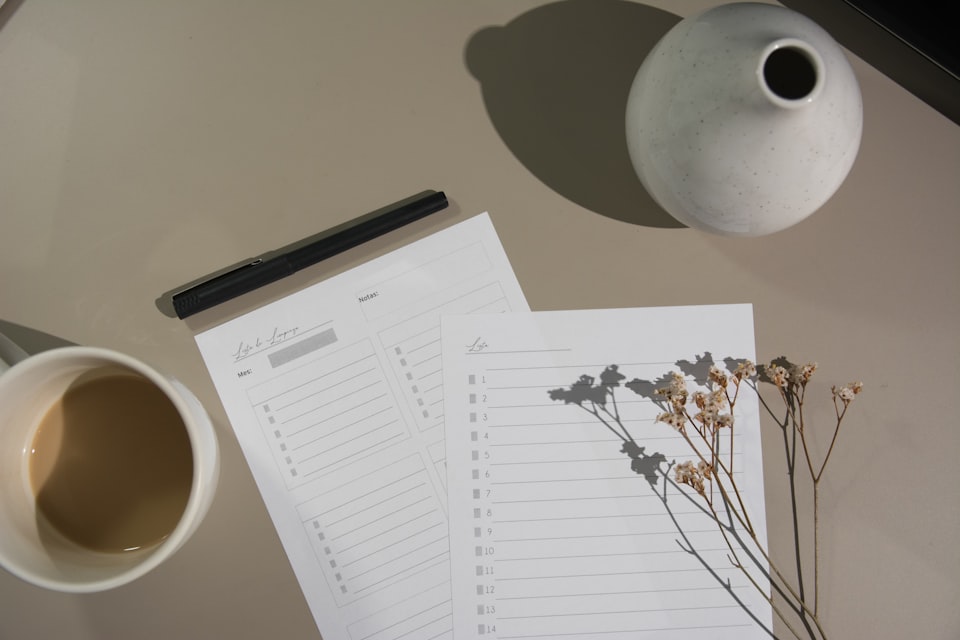3 Steps to Prepare a Nourishing Postpartum Recovery Plan

Disclosure: Please note that some of the links in this article are affiliate links, which means I will make a commission if you choose to purchase through the link at no additional cost to you (and sometimes an exclusive discount to you!). These are only products I stand behind, and I will not recommend something that I have not verified or personally tested. These links help me continue to provide free content for you.
What should I even plan for in the postpartum period?
Many people talk about their birth plans, and all the choices they’re exploring related to the labor and delivery process. How many people talk about their postpartum healing plan? Arguably, you have more control over a postpartum plan than you do a birth plan and so it warrants time and energy. Wherever you are in your motherhood journey, there’s always benefit to talking about how to add in more nourishment to your life.
We're going to talk about three simple steps you can prepare for the most supportive and restful postpartum experience possible no matter if you're going back to work at six weeks, or you plan to stay at home for the forseeable future. Support is crucial for everyone, regardless of how you decide to feed your baby, how many kids you already have, or what your life looks like. Postpartum = rest.
Step 1: Build Your Support Network
Whether you live close to family or are oceans away, think through who’s going to help you when you’re resting and feeding a newborn. Who is going to entertain the other children? Who's going to take care of the dog? Who's going to do your dishes and cook meals for you? (Hint: the answer to all of these is not you.) This free lying-in plan from Earth Mama Angel Baby is so helpful for just pre-planning and thinking through what your support system might look like in those early weeks, when you’ll be sleep deprived and a printed reminder list will be helpful.
Other ways to plan for support
- Do you plan to breastfeed? Meet with an IBCLC prior to birth if possible to establish a relationship and take a breastfeeding class. Do you plan to pump and bottle feed or use formula? Think about a plan for who can help with washing bottles and pump parts?
- Put things on your registry that are for you. Examples: a fund for postpartum doula hours, gift cards for a cleaning company, babysitting for older kids if needed, Doordash and similar gift cards, the Bellies Inc. Ab System for postpartum core support and healing (You can get 10% off with this link!), Frida Mom items, gift certificates for your favorite massage/spa treatment. You deserve all of these. And you probably don't need 50 baby onesies, even if they're cute.
- Establish with a counselor or have resources/support groups at the ready like Postpartum Support International’s online support meetings.
Step 2: Prioritize Resting
Your job for the first month if possible is to rest, nourish your body, and nourish your baby. Preparing nutrient-dense freezer meals in advance is one of the best ways to do this if you don’t have a mom/auntie/sister coming to cook all your meals for you for a month.
This is not the time to "get back in shape." Give your body grace. You just completed the most challenging, labor-intensive, mentally-demanding feat of all humanity. You brought another human into the world. It took you approximately 10 months to grow a baby, so it should at least take that long to recover. You’re a new version of you, and it takes time to explore what that means. Having abundant grace and love for yourself in this period will serve you well.
Other ways to plan for nourishment
- In addition to eating well, hydration is key for lactation and keeping your body working well. LMNT is my favorite no-sugar electrolyte drink. I personally drink it daily.
- Use Lily Nichols’ books for reference on nourishing meals. And maybe share recipes with people who want to make you meals post birth. Think: lots of collagen and fat. Soups and stews your grandma would make you.
- Read The First Forty Days. I believe this book is essential for learning about just how important the postpartum period is. It provides incredible insight into how to heal well, and rest how you should during this “fourth trimester.”
Step 3: Return to Normal Life Slowly
Know that however you choose to parent, sleep, feed, and care for your baby, you’re doing a good job. Being a parent is a hard job, and there are many ways to do it! I encourage you to slow down, and take your time returning to "normal life" as you transition to what that looks like with a new baby or babies in tow!
It's okay for your life to change and for social events to be different than before. There's no rush to getting back to every event and activity in the immediate posptartum period.
As you're processing emotions, your birth story, and what it's like to be brand new parents, journaling and writing down your thoughts can be so helpful. It's also great to jot down your questions for your provider for when you’re sleep deprived and can’t quite remember what you were wondering at that 3 am feeding.
As far as exercise goes, there is step-by-step guidance in the Core Confidence Program that comes with the Bellies Inc. Ab Wrap, as well as in this article:

If you like to learn by listening, there's a lot of amazing information in this interview with Julia Di Paolo, Pelvic Floor PT, on the Resource Doula Podcast:
My top recommendations for early postpartum movement:
- Spend lots of time on the floor with your baby, which helps you mobilize your hips in new ways, and getting up and down off the floor will build strength.
- You simply start with breathing, and slowly progress from there. Glute strengthening is one of the keys to a better core. Think: bridges, clams, leg lifts.
- Walking is a great exercise. Get outside for short walks (10-15 minutes) around 2-3 weeks postpartum.
- See a qualified Pelvic Floor Physical Therapist around 6-8 weeks postpartum. Find one near you.
I hope these steps have inspired you to to start building your postpartum support plan!




